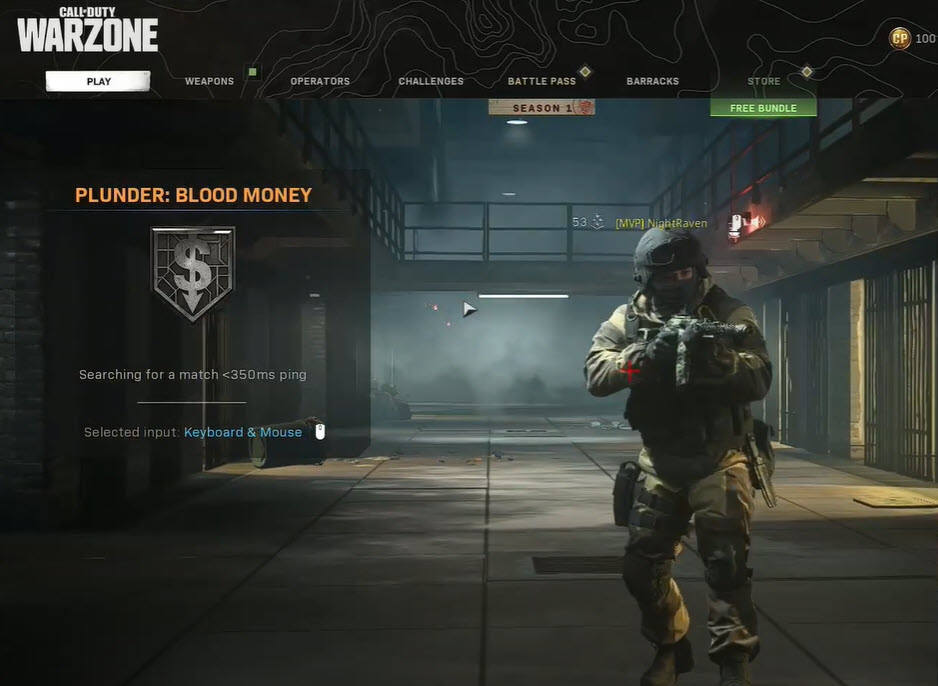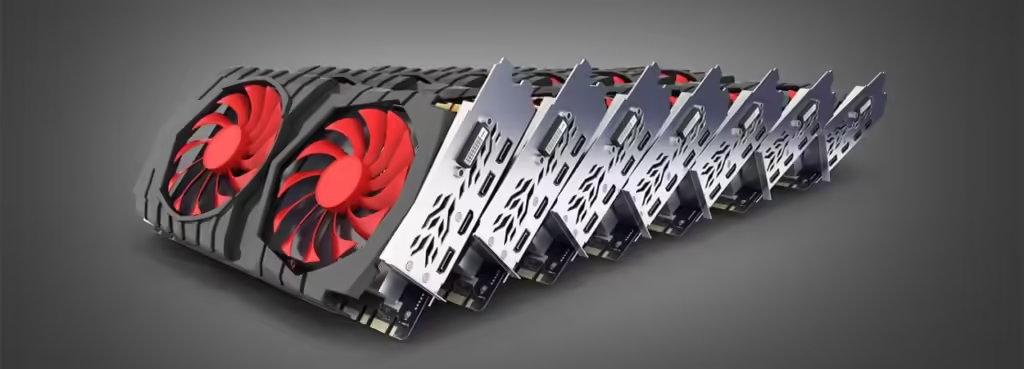In my experience, Call of Duty heavily relies on the GPU for stunning visuals and high frame rates, but a strong CPU is also crucial to handle smooth game logic and multiplayer interactions. Balancing both components has made my gameplay much more enjoyable and responsive.
Call of Duty is both CPU and GPU intensive. The GPU handles the detailed graphics and visual effects, while the CPU manages game logic and AI. For the best experience, you need a powerful GPU for smooth visuals and a strong CPU for overall performance.
In this article, we will discuss “Is call of duty CPU or GPU intensive”.
What Is Call Of Duty?
Call of Duty is a popular series of first-person shooter games. Players engage in fast-paced battles, often featuring realistic military scenarios. The games are known for their intense action, detailed graphics, and engaging multiplayer modes.
Also Read: What Temp Does GPU Fan Turn On – Prevent Overheating 2024!
What Does CPU And GPU Mean?
The CPU (Central Processing Unit) is the computer’s brain, handling all the main tasks and instructions. The GPU (Graphics Processing Unit) focuses on rendering images and videos, making games and videos look good. Both are important for smooth computer performance.

Is Call Of Duty CPU Or GPU Intensive?
Call of Duty is both CPU and GPU intensive. The GPU, or Graphics Processing Unit, handles the game’s detailed visuals, like textures and special effects, making sure everything looks sharp and smooth.
The CPU, or Central Processing Unit, manages the game’s logic, such as player movements and enemy actions. For the best experience, you need a powerful GPU for clear graphics and a strong CPU to keep the game running smoothly.
How Do CPU And GPU Affect Call Of Duty?
In Call of Duty, the GPU handles the graphics, like the game’s detailed textures and effects, ensuring they look good and run smoothly. The CPU manages the game’s operations, such as player movements and AI behavior.
A strong GPU improves visual quality, while a powerful CPU helps the game run without delays. Both are essential for a smooth and enjoyable gaming experience.
Why Is It Important To Balance CPU And GPU?
Balancing the CPU and GPU is important because they each handle different parts of the game. A strong GPU ensures great graphics and smooth visuals, while a good CPU manages game actions and logic.

If one is too weak, it can slow down the game or cause performance issues. Having both components well-matched ensures a smooth and enjoyable gaming experience.
What Happens If My GPU Is Not Powerful Enough For Call Of Duty?
If your GPU isn’t powerful enough for Call of Duty, the game may look blurry or have low-quality graphics. You might also experience lower frame rates, causing the game to run slowly or lag. This can make the gameplay less enjoyable and affect your overall gaming experience.
Also Read: Why Is My GPU Temp So High At Idle – Complete Guide 2024!
How Can I Improve Call Of Duty Performance If My CPU Is Too Slow?
1. Lower Game Settings:
Reduce settings like graphics quality and resolution to ease the load on your CPU. Lowering these settings can help the game run more smoothly.
2. Close Background Applications:
Make sure to close other programs and apps running on your computer. This frees up CPU resources for Call of Duty, improving performance.
3. Update Your Drivers:
Keep your CPU and GPU drivers up to date. New drivers can enhance performance and fix issues that might be slowing down the game.
4. Upgrade Your CPU:
If possible, consider upgrading to a faster CPU. A more powerful CPU will handle game logic and AI more efficiently, leading to better performance.
5. Optimize System Settings:
Adjust your system’s power settings to “High Performance” mode. This ensures that your CPU runs at its best speed while gaming.
Can A Weak CPU Affect My Call Of Duty Gameplay?
Yes, a weak CPU can affect your Call of Duty gameplay by causing delays and lag. It handles game actions and AI, so if it’s not powerful enough, you might experience slow response times and interruptions, especially during busy or intense moments in the game.

Can I Play Call Of Duty On A Laptop With A Weak GPU And CPU?
No, playing Call of Duty on a laptop with a weak GPU and CPU can be challenging. The game might run slowly, with poor graphics and lagging issues. For a better experience, you need a laptop with a more powerful GPU and CPU to handle the game’s demands effectively.
Is It Better To Upgrade My CPU Or GPU First For Call Of Duty?
Yes, it’s generally better to upgrade your GPU first for Call of Duty. The GPU handles the game’s graphics, so a stronger GPU will improve visual quality and frame rates. If your GPU is already strong, then consider upgrading your CPU for better overall performance, especially in complex game scenarios.
Also Read: Is 85 C Hot For GPU – Complete Guide 2024!
Is Gaming A CPU Or GPU Intensive Task?
Yes, gaming is both CPU and GPU intensive. The GPU is responsible for rendering graphics and visual effects, making the game look smooth and detailed. The CPU handles game logic, AI, and other processes. For the best gaming experience, you need both a powerful GPU for great visuals and a strong CPU for smooth performance.
Do Older Call Of Duty Games Need As Much CPU And GPU Power As Newer Ones?
No, older Call of Duty games generally need less CPU and GPU power compared to newer ones. Newer games have more advanced graphics and complex features, requiring more processing power. Older games have simpler graphics and can run on less powerful hardware.

Does Having More RAM Help With Call Of Duty Performance?
Yes, having more RAM can help with Call of Duty performance. Extra RAM allows your computer to handle more tasks and run more applications at once without slowing down. This can improve overall game performance and reduce lag, especially if you run other programs alongside the game.
Can Overclocking My GPU Improve Call Of Duty Performance?
Yes, overclocking your GPU can improve Call of Duty performance by increasing its processing speed, which can lead to higher frame rates and better graphics. However, overclocking also raises the risk of overheating and may require better cooling solutions to maintain stability and prevent damage.
Does Call Of Duty Benefit From Having A High Refresh Rate Monitor?
Yes, Call of Duty benefits from having a high refresh rate monitor. A high refresh rate monitor can display more frames per second, making the game look smoother and more responsive. This improves gameplay, especially if your GPU can produce high frame rates.
Can A Better Cooling System Help With Call Of Duty Performance?
Yes, a better cooling system can help with Call of Duty performance. Good cooling keeps your CPU and GPU from overheating, which can prevent performance drops and thermal throttling. This ensures that your hardware runs smoothly and efficiently during intense gaming sessions.
Also Read: What Should GPU Temp Be While Gaming – Complete Guide 2024!
Are There Specific Settings In Call Of Duty That Are More GPU Or CPU Intensive?
Yes, there are specific settings in Call of Duty that are more GPU or CPU intensive. Graphics settings like texture quality and shadows are more demanding on the GPU, while settings like draw distance and AI behavior use more CPU power. Adjusting these settings can help balance performance based on your hardware.

FAQs:
1. What Are The Signs That My CPU Is Holding Back My Call Of Duty Performance?
If you notice your game stutters, slows down during busy moments, or if your CPU usage is always high, it could be holding back performance.
2. How Does The Number Of Cores In My CPU Affect Call Of Duty?
A CPU with more cores can handle more tasks at once, which helps in managing game logic and AI, improving overall performance.
3. Should I Focus On A High-End GPU Or A High-End CPU For Call Of Duty?
For the best performance, both are important. If you have to choose, a high-end GPU is generally more important for better graphics and frame rates.
4. What Is The Impact Of Resolution On CPU And GPU Performance In Call Of Duty?
Higher resolutions require more GPU power to render graphics, while the CPU handles other tasks. Lowering the resolution can reduce GPU load.
5. How Does Having A Fast SSD Affect Call Of Duty Performance?
A fast SSD can reduce load times and improve game responsiveness, but it doesn’t directly impact CPU or GPU performance.
6. What Settings Should I Adjust If My GPU Is Struggling With Call Of Duty?
Try lowering the resolution, turning off extra visual effects, and reducing texture quality to ease the load on your GPU.
7. How Do I Check If My CPU Is Causing Performance Issues In Call Of Duty?
Monitor your CPU usage while playing. If it’s constantly at high usage and your game is lagging, your CPU might be the problem.
8. What Is More Important For A Smoother Call Of Duty Experience, CPU Or GPU?
Both are important. The GPU handles graphics, while the CPU manages game logic and interactions. A balance between both is best.
Conclusion:
In conclusion, Call of Duty is both CPU and GPU intensive, with each component playing a crucial role. The GPU handles the detailed graphics and visual effects, while the CPU manages game logic and AI. For the best experience, having a balanced, powerful GPU and CPU is essential. This ensures smooth gameplay, clear visuals, and responsive game performance.
Read More:
